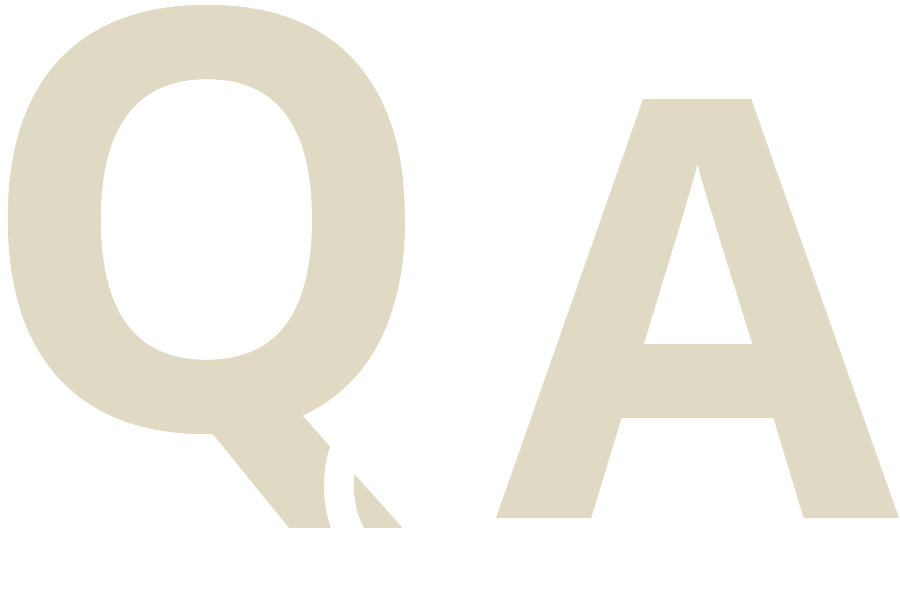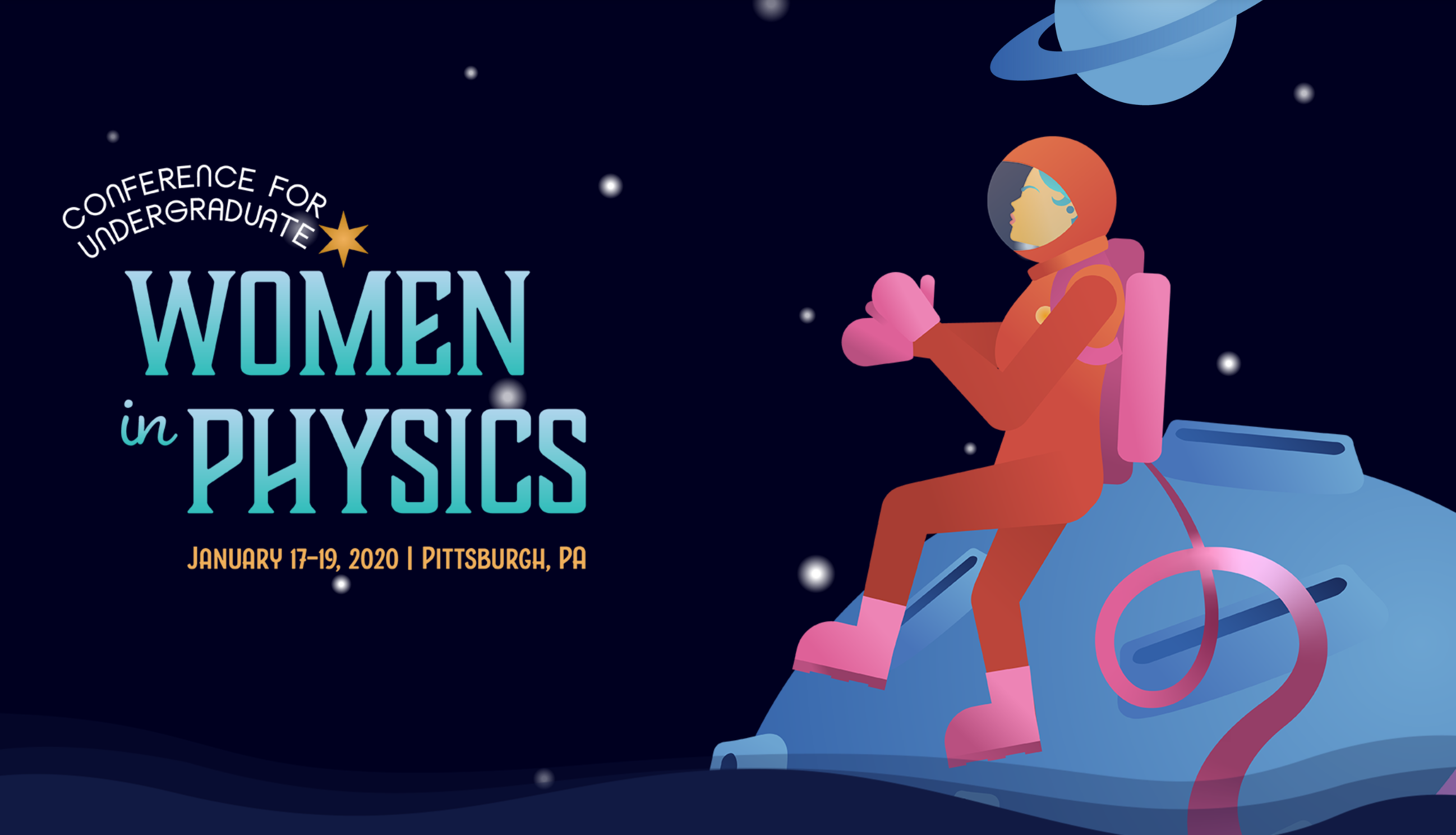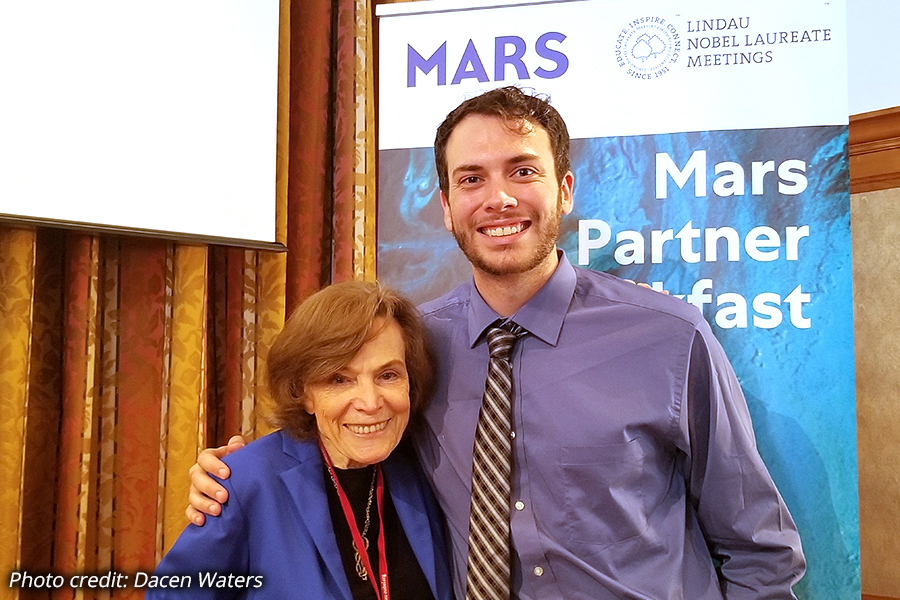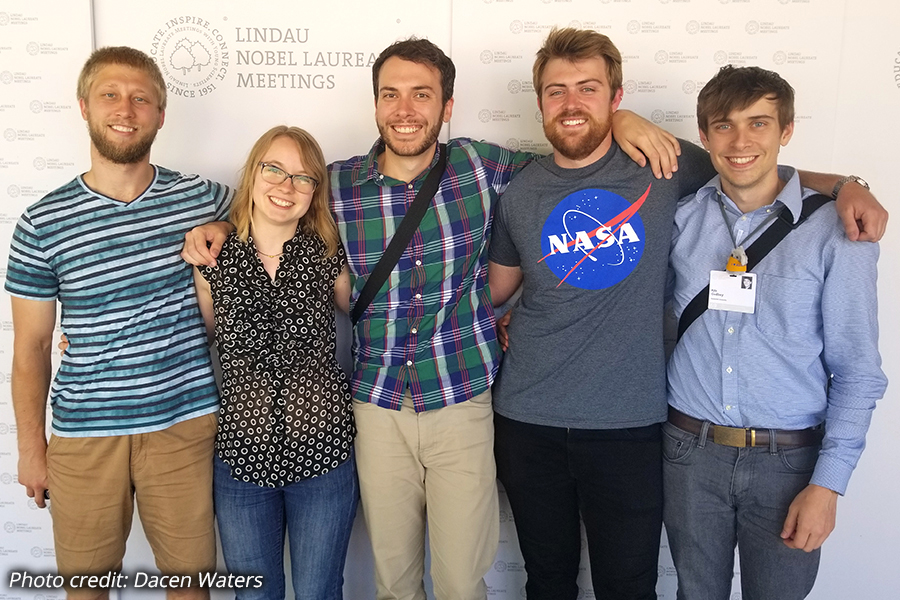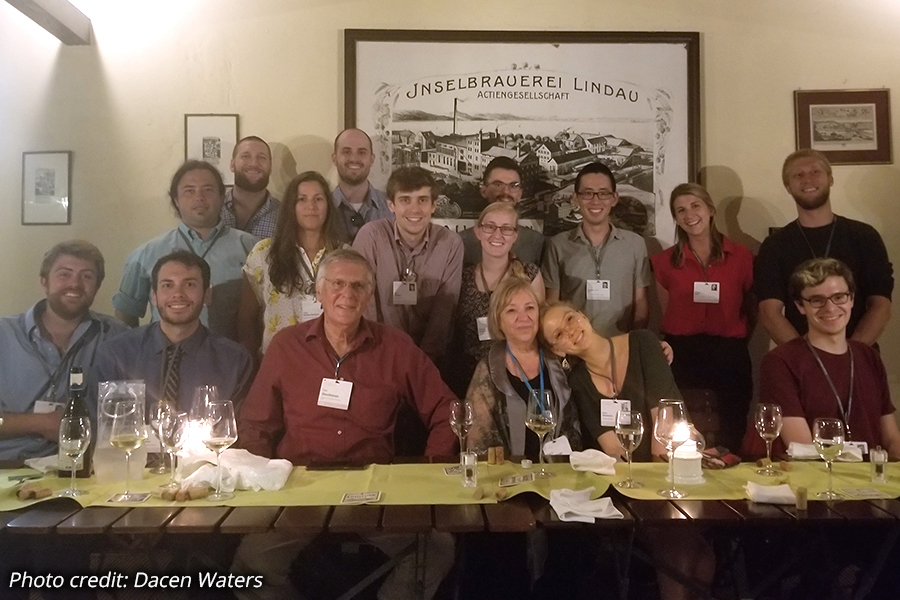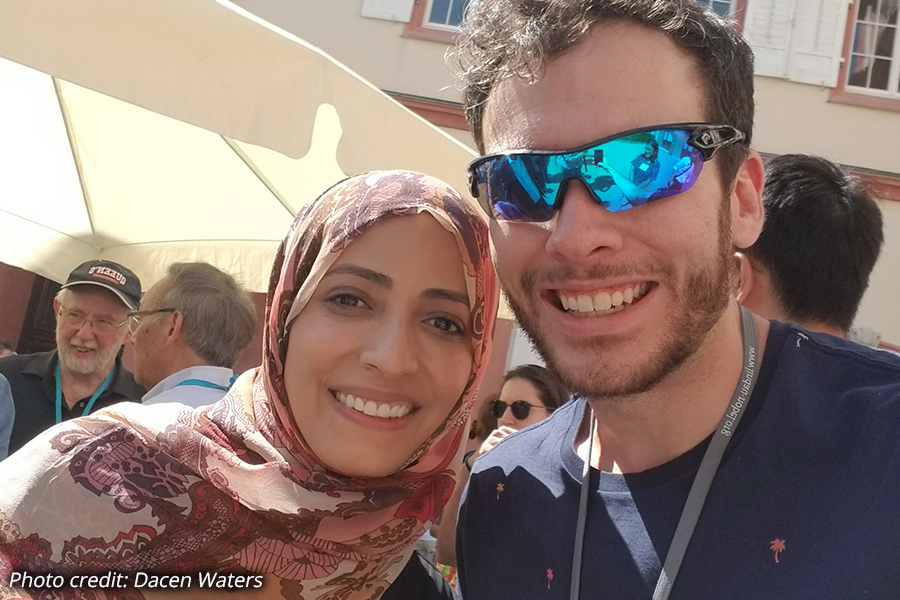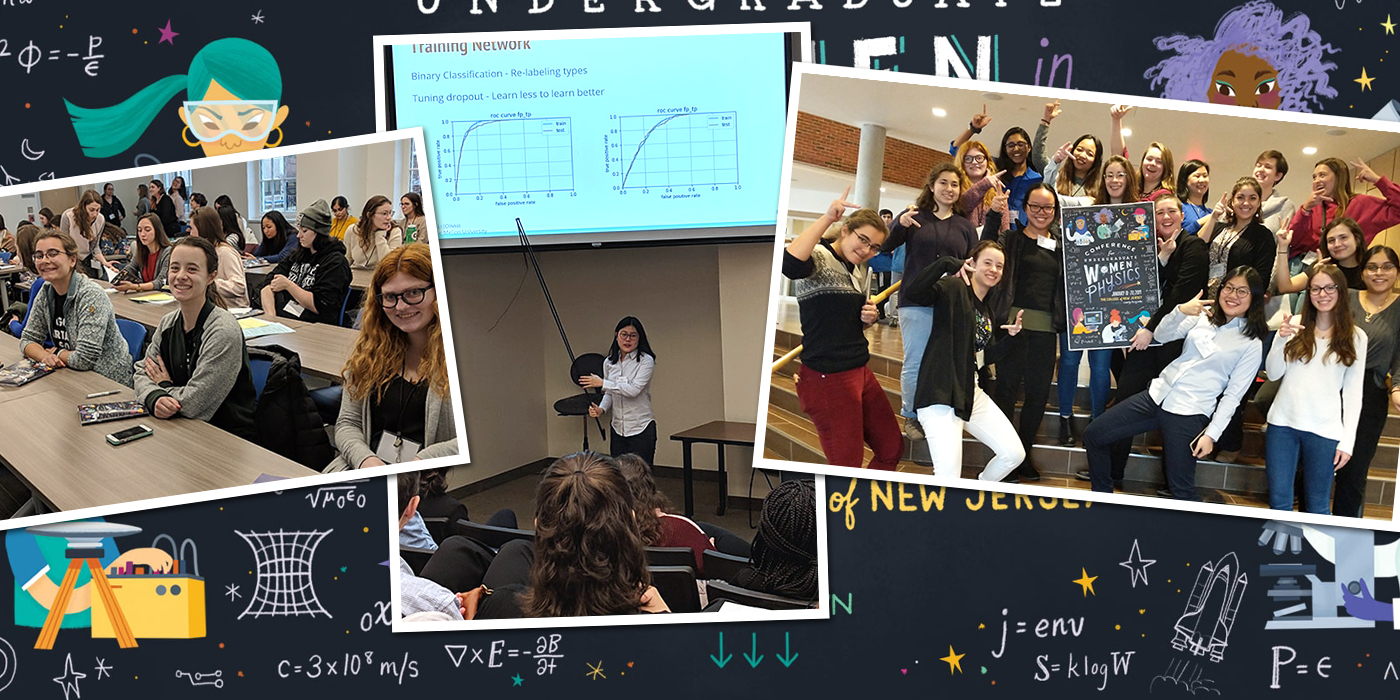

Students Attend Conference for Undergraduate Women in Physics
Pittsburgh to Host Conference Next Year
Over the course of the conference, attendees were treated to plenary talks from women professionals, workshops on how to craft academic resumes and personal statements, panel discussions on careers from women in different areas of physics on how their degrees have supported them, and a tour of the Princeton Plasma Physics Laboratory. A handful of students were invited to give oral presentations to their fellow attendees, including physics senior and president of Carnegie Mellon’s Women in Science club Zhiyao (Olivia) Li.
Physics graduate student Rebecca Rapp also made the trek to TCNJ to promote Carnegie Mellon’s graduate program in physics to prospective students.
“It was incredibly rewarding to help moderate discussions at meals, answer questions about graduate school and offer my advice (or) input where appropriate, much like older graduate students did for me just a few years ago,” she said.
The Department of Physics is gearing up to host a CUWiP of its own next year. Partnering with the University of Pittsburgh, Washington & Jefferson College and Duquesne University, the department will bring 250-300 undergraduate physics majors who identify as women to Pittsburgh for three days, Jan. 17-19, 2020.
“It has been shown to be an effective tool in getting women into physics and helps with retention,” said Special Lecturer Diane Turnshek.
As the conference nears, excitement in the department is increasingly palpable.
“Meeting other women (at the 2019 conference) who were either going through what I had gone through or who had already gone through it was both reassuring and inspiring,” said sophomore Aria Salyapongse. “I cannot wait until we can host our own CUWiP and bring together another wonderful sea of women.”
■ Theresa Gabrielli

A Meeting to Remember
Ph.D. candidate Dacen Waters attended the 69th annual Lindau Nobel Laureate Meeting. Held on Lake Constance, Germany, the meeting is a chance for young scientists to meet and mingle with the mavens behind some of science’s greatest discoveries.
This year’s gathering brought together 39 Nobel Laureates and 580 scientists from 89 countries. The program is packed with a number of large events such as lectures, panel discussions and master classes that allow attendees to hear from the Laureates about their discoveries and their careers and explore a wide range of current topics in physics.
For example, Waters participated in a master class on topology, the mathematical study of shapes and space, which recently has begun to provide unique insights into the physics of materials.
Topology is a rising star in condensed matter physics, Waters’ area of research. His work uses scanning tunneling microscopy to explore two-dimensional materials. Depending on how 2D materials are arranged, it can change the properties and functions of those materials. Scientists believe that understanding topological materials and how to engineer them could eventually lead to big advances in quantum computing.
The meeting also featured a number of smaller, more informal events.
“The whole conference is difficult to convey. It’s a very unique experience,” said Waters in describing the smaller gatherings like Q&A sessions, Laureate Lunches and Science Walks that let the scientists pick the Laureates brains in more intimate settings.
Some of the most memorable moments for Waters included attending a Laureate Lunch with Konstantin Novoselov, who received the Nobel Prize in 2010 for his co-discovery of graphene, and meeting Duncan Haldane, a prominent condensed matter theorist who was awarded the 2016 Nobel Prize for his work on topological phases of matter.
“Being able to listen to them and talk about what is going on in the field right now and tell them about my own work was an amazing experience,” said Waters.
The most impactful takeaway, Waters noted, was the inspiration the meeting invited. Many of the speakers, including the keynote from Australian Nobel Laureate Brian Schmidt, encouraged attendees to play an active role in confronting today’s societal issues.
“As scientists, we bring particular skills and a unique way of thinking about the world, and we should think about how that intersects with acting as a global citizen. We have a responsibility to act on things, such as politics and climate change.”
■ Emily Payne
